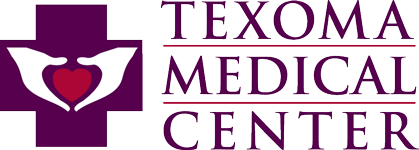The Liver Plays a Large Role in Many Body Functions
April 11, 2020
It’s likely you underestimate the liver. In fact, the multi-tasking organ plays a big role in many body functions. “The liver has a lot of responsibility,” says Hepatologist and founder of the Texoma Liver Center, Hesham Elgouhari, MD, FACP. “Twenty-five percent of the blood coming from the heart goes to the liver to help clear toxins, fight infections, help with the immune system, produce bile to help digest fatty foods and take care of biochemical reactions of proteins, lipids and carbohydrates in the body.”
Understanding Liver Disease
There are many risk factors for developing liver disease. The most common is metabolic syndrome, which includes diabetes, high cholesterol, high blood pressure and being overweight. Heavy alcohol use is another risk factor, which can cause alcoholic liver disease and cirrhosis. Recently, it has been recommended for adults ages 18-79 to be screened for Hepatitis C, or younger if they have risk factors such as a history of illicit drug use or high-risk sexual behavior. A family history of liver disease may also increase your risk.
Types of Disease
Metabolic conditions put someone at risk for nonalcoholic fatty liver disease (NAFLD) and its progressive subtype, nonalcoholic steatohepatitis (NASH). According to the National Institutes of Health, between 20 and 40 percent of U.S. adults have NAFLD, and about 3 to 6 percent have NASH. NAFLD causes excess fat to be stored in the liver, but, as the name suggests, not due to alcohol consumption. It is more common in people who are obese or who have type 2 diabetes. NASH involves hepatitis as well as a fatty liver and inflammation, which can lead to cirrhosis or liver cancer. Other common liver diseases are hepatitis B or C.
There are no early warning signs for a diseased liver, Dr. Elgouhari says. “You won’t know your liver is bad until you get very sick, like developing jaundice, which turns your skin yellow, or ascites, which is the buildup of fluid in the abdominal cavity,” he says. Unfortunately, there aren’t many treatment options for a severely diseased liver. “It’s a very patient organ, but it is also unique because there is no treatment, like dialysis. The only option is a liver transplant.”
Taking Care of Your Liver
If you are at risk for liver disease, early detection, screening and changing your diet and lifestyle is important. “If you catch problems early on, you can have a much better outcome and potentially reverse the disease,” says Dr. Elgouhari. He recommends a diet rich in whole foods, fruits and vegetables; regular aerobic exercise; and gradual weight loss if you are overweight.
“The liver acts as a filter, and the cleaner your filter, the more your body can absorb the proper nutrients,” Dr. Elgouhari says. “Eliminating processed and genetically modified food, as well as saturated fat, is a good idea. Be cautious about your alcohol intake as well, and be wary of certain medications that can be detrimental to the liver in high doses, such as acetaminophen. If you have a family history of liver disease, let your doctor know so you can get the appropriate screenings completed.”
